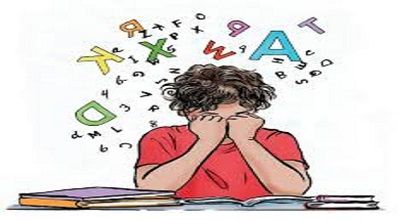Dyslexia
Dyslexia is a language-based learning disability that primarily affects a person’s ability to read, write, spell, and sometimes speak. It is one of the most common learning disabilities and involves difficulty processing and interpreting written language. Here are some key aspects of dyslexi a:
- Phonological Processing: The core difficulty in dyslexia often lies in phonological processing, which is the ability to discern and manipulate the sounds in words. This can affect the ability to associate sounds with their corresponding letters and blend sounds into words, making reading and spelling challenging.
- Reading and Decoding: Individuals with dyslexi a may have difficulty reading fluently and accurately. They often struggle with decoding, which is the process of translating printed words into sounds. This can result in slow, laborious reading and difficulty with comprehension.
- Writing and Spelling: Dyslexia can also impact writing skills. People with dyslexi a might have trouble with spelling and organizing their thoughts in writing, and they may find it hard to put their ideas down on paper in a coherent way.
- Neurobiological and Genetic Factors: Dyslexia is believed to have a neurological and genetic basis. Brain imaging studies have shown differences in the way the brain of a person with dyslexi a processes language. There is also a higher likelihood of dyslexi a occurring in families, suggesting a genetic component.
- Varied Severity and Symptoms: The severity and specific symptoms of dyslexi a can vary widely among individuals. Some may have mild difficulties, while others might experience significant challenges in literacy skills.
- Not Related to Intelligence: It’s important to note that dyslexi a is not related to a person’s intelligence. Individuals with dyslexia have normal intellectual abilities; they just process language differently.
- Lifelong Condition: Dyslexia is a lifelong condition, but with proper support and intervention, individuals with dyslexia can learn to improve their reading and writing skills and successfully manage the challenges posed by dyslexia.
Educators, parents, and professionals need to understand dyslexia so they can provide the appropriate support and resources to those affected by it. Early identification and tailored educational strategies can significantly help individuals with dyslexi a achieve their full academic and personal potential.




